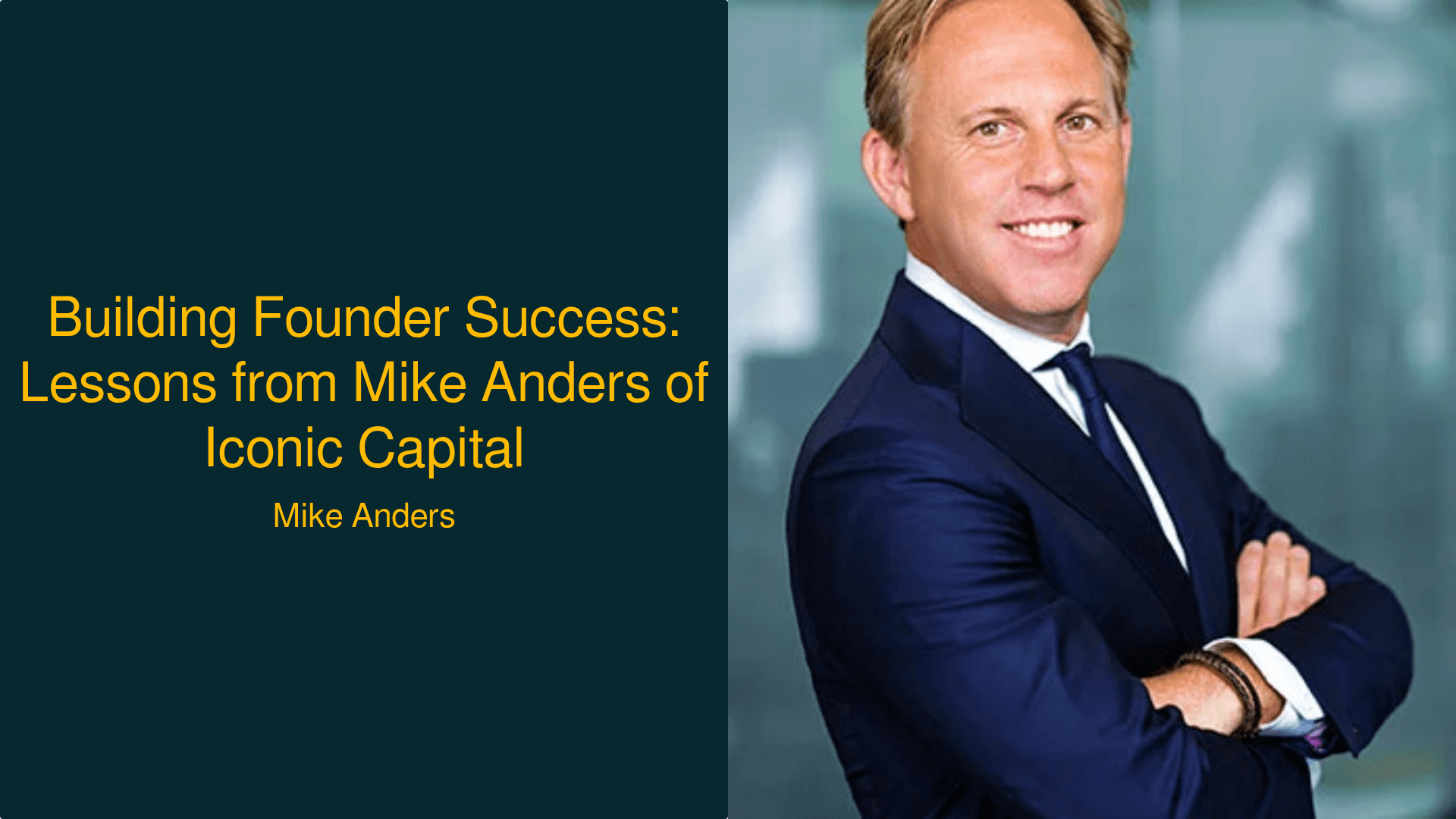Unlocking Founder Success: Strategies from Jack Canfield
Explore key founder success strategies and actionable insights from Jack Canfield's interview.

Unlocking Founder Success: Strategies from Jack Canfield
In the world of entrepreneurship, the path to success is often fraught with challenges and uncertainties. To navigate this landscape, founders must equip themselves with the right mindset and strategies. In this insightful interview with Jack Canfield, co-author of the iconic “Chicken Soup for the Soul” series, we delve into the core principles that drive founder success. Canfield’s extensive experience in personal development and goal achievement provides invaluable lessons for entrepreneurs looking to thrive in today’s competitive environment. Throughout this article, we will extract key insights, frameworks, and actionable strategies from Canfield’s wisdom, focusing on how clarity, responsibility, and a proactive mindset can significantly impact business outcomes. By the end of this piece, you will not only understand the foundational elements of founder success but also have practical steps to implement these principles in your own entrepreneurial journey.
Taking 100% Responsibility for Your Life
The first one is take 100% responsibility for your life. Most people are blamers, complainers, and excuse makers. — Jack Canfield
Why it matters: Taking full responsibility for one’s actions is crucial for founders. It fosters a proactive mindset that leads to better decision-making and resilience in the face of challenges. When entrepreneurs own their outcomes, they are more likely to learn from failures and pivot effectively. Research shows that individuals who adopt a proactive approach are more likely to achieve their goals and experience higher levels of satisfaction in their lives.
How to Apply This
- Reflect on past challenges and identify how your responses shaped the outcomes.
- Create a list of current responsibilities in your personal and professional life.
- For each responsibility, outline actionable steps you can take to improve the situation.
- Develop a daily practice of acknowledging your role in both successes and failures.
- Engage with a mentor or coach to discuss your progress and gain accountability.
Clarity of Purpose: The Foundation of Success
Most people do not know what their purpose is. They don’t know what their why is. Why are they here? — Jack Canfield
Why it matters: Clarity of purpose is essential for founders to align their goals with their core values. A strong sense of purpose not only motivates entrepreneurs but also helps them make strategic decisions that resonate with their vision. Successful founders often articulate their purpose clearly, which guides their actions and inspires their teams. Organizations with a well-defined purpose report higher employee engagement and customer loyalty, ultimately driving success.
How to Apply This
- Spend time reflecting on your passions and interests that bring you joy.
- Write down your life’s mission statement or your ultimate goal.
- Identify how your business aligns with your personal values and purpose.
- Share your purpose with your team to foster a unified vision.
- Reassess your goals periodically to ensure they align with your evolving purpose.
The Art of Goal Setting
A goal is how much by when. So it’s one thing to say, I want to live in a nice house on the ocean. That’s a hope, a wish and intention. But it’s not a goal. — Jack Canfield
Why it matters: Effective goal setting is a critical skill for founders. Clear, measurable goals provide direction and motivation, enabling entrepreneurs to track their progress and adjust their strategies as needed. Studies show that writing down goals increases the likelihood of achieving them by 42%. By establishing specific, measurable, attainable, relevant, and time-bound (SMART) goals, founders can create a roadmap to success.
How to Apply This
- Identify key areas in your life or business where you want to set goals.
- Use the SMART criteria to formulate each goal clearly.
- Break down larger goals into smaller, manageable tasks.
- Schedule regular check-ins to assess progress towards each goal.
- Adjust your goals as necessary based on your evolving business landscape.
Overcoming Limiting Beliefs
Beliefs are just a choice. You can choose to believe anything you want. — Jack Canfield
Why it matters: Limiting beliefs can hinder a founder’s ability to take risks and seize opportunities. By recognizing and reframing these beliefs, entrepreneurs can unlock their potential and foster a growth mindset. Successful founders often share stories of overcoming self-doubt and embracing challenges, which leads to innovation and resilience. Research indicates that individuals who adopt a growth mindset are more likely to achieve their goals and embrace learning.
How to Apply This
- Identify any negative beliefs that may be holding you back.
- Challenge these beliefs by gathering evidence that contradicts them.
- Create positive affirmations to replace limiting beliefs.
- Visualize success and the positive outcomes of overcoming these beliefs.
- Surround yourself with supportive individuals who encourage a growth mindset.
Pivoting in Uncertainty
It’s not the event, it’s your response. — Jack Canfield
Why it matters: In a rapidly changing business environment, the ability to pivot is essential for success. Founders who adapt to new circumstances and embrace change are more likely to thrive. The COVID-19 pandemic highlighted the importance of agility in business, with many entrepreneurs successfully pivoting their operations to meet new demands. Data suggests that organizations with adaptive strategies are better equipped to handle disruptions.
How to Apply This
- Assess your current business model and identify areas for potential pivot.
- Research market trends and customer needs to inform your pivot strategy.
- Develop a contingency plan outlining steps for various scenarios.
- Communicate changes to your team clearly and encourage their input.
- Monitor the results of your pivot and be prepared to make further adjustments.
Conclusion
In conclusion, the insights shared by Jack Canfield offer invaluable guidance for founders striving for success. By taking full responsibility for their actions, gaining clarity of purpose, setting effective goals, overcoming limiting beliefs, and learning to pivot in times of uncertainty, entrepreneurs can cultivate a mindset conducive to achieving their vision. These principles are not merely theoretical; they are actionable strategies that can lead to tangible outcomes in the ever-evolving landscape of entrepreneurship. As you embark on your journey, remember that the path to founder success is paved with intentional choices, resilience, and a commitment to continuous growth. Embrace these principles and take the necessary steps toward realizing your entrepreneurial dreams.


